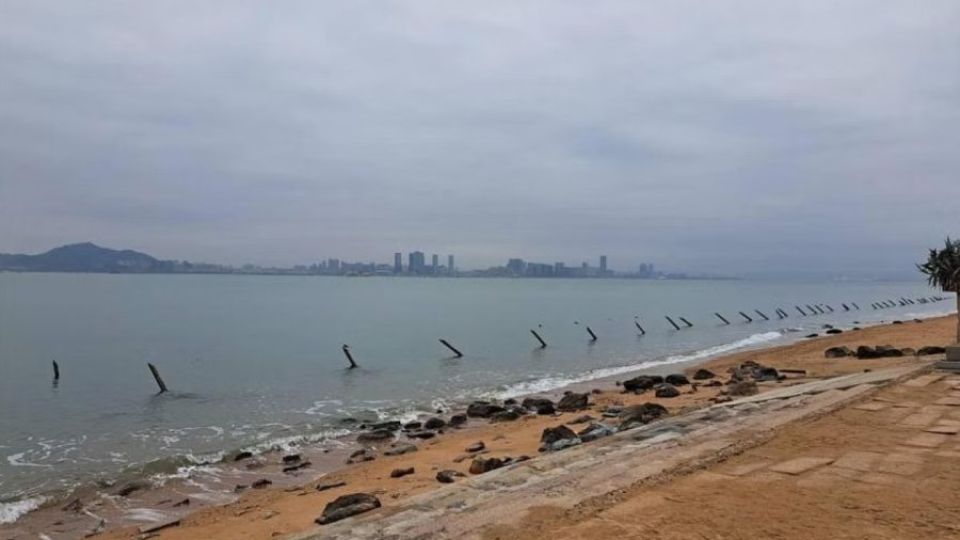September 15, 2023
TAIPEI – With four months to go before Taiwan’s presidential election, Beijing on Tuesday outlined measures to smooth the way for Taiwanese to live, work and study in Fujian, the Chinese province closest to Taiwan.
From equal treatment for Taiwanese students to enrol in public schools to help with accessing welfare services, Fujian will be a model zone for “integration” with the island, Beijing said in a 21-article document.
The measures are designed to “deepen the integrated development of various fields across the Taiwan Strait and promote the process of peaceful reunification of the motherland”, read the document.
But analysts told The Straits Times the measures are unlikely to appeal to most Taiwanese, except for those living on Taiwan’s outlying islands of Kinmen or Matsu, situated off China’s coast.
Beijing has been sending warships and warplanes around Taiwan almost daily over the past three years, they noted. Just on Monday, Chinese naval forces initiated what is believed to be one of its largest exercises in the waters on Taiwan’s east.
The mixed messaging is confusing for Taiwanese, who will find it difficult to trust Beijing’s promises of rewards, analysts said, making the Fujian integration plan unattractive, especially given China’s own economic challenges.
“The plan encourages Taiwanese to buy homes in Fujian, and to find work there to ‘realise their dreams’ in China, as the document says. But when Beijing keeps threatening Taiwan with military aggression, how are Taiwanese supposed to process all this information?” Associate Professor Chen Shih-min, a political scientist at National Taiwan University, told The Straits Times.
He added that China’s economic woes would also present a major obstacle to many Taiwanese looking for opportunities abroad.
“There are so many news reports of China’s unfinished construction projects and its unemployment rates. It’s unlikely that Taiwanese will be convinced that it’s a good idea to go to China right now,” he said.
In August, China’s state-owned property developers warned of widespread losses, fuelling concerns that the country’s two-year housing slump has expanded from the private sector to companies with government backing.
Meanwhile, China’s youth unemployment rate has surged, with the latest data showing that 21.3 per cent of young Chinese – or around one in five – were jobless in June. In August, Beijing withheld publication of its July youth jobless data, further raising concerns over its fragile economy.
But there is a small group of Taiwanese who might be enticed by the Fujian plan, analysts said. These would be residents in the outlying Kinmen islands, whose population of 127,000 is a fraction of Taiwan’s 23.6 million.
The Kinmen archipelago is governed by Taiwan but is situated off China’s coast, with its closest point just 3km away from Fujian’s Xiamen City. On a clear day, Xiamen’s towering skyscrapers are visible from Kinmen’s beaches.
“Many Kinmen residents have long conducted business in China, and they have relatives or spouses in Xiamen. China keeps pushing the idea that both sides of the strait are one family, and that’s actually the case for the people of Kinmen,“ said Assistant Professor Ma Chun-wei from Taiwan’s Tamkang University.
Beijing’s Fujian directive makes particular note of Kinmen, pledging to deepen cooperation on infrastructure projects between Xiamen and the archipelago, including the construction of a bridge connecting the two sides.
Kinmen residents would also be encouraged to use Xiamen’s new airport that is set to open in 2025.
“We will ensure that Kinmen residents living in Xiamen can enjoy the same treatment as local residents,” said the document.
Similar integration proposals were highlighted in the document for China’s Fuzhou city and Taiwan’s Matsu Islands, 9km away from the mainland.
“Apart from the outlying islands, I think most Taiwanese would be indifferent to the Fujian plan. Beijing has long taken a carrot and stick approach to Taiwan – we’ve been confused for so long that such announcements rarely have an effect any more,” said Prof Ma.
He also noted that most of the Fujian plan is not new.
In the late 1970s, Fujian was selected as the first Chinese province to conduct economic exchanges with Taiwan, and in the 1990s, four Taiwan investment zones were set up in the province to promote cross-strait economic cooperation.
In 2021, Chinese President Xi Jinping, who spent the early part of his career in Fujian, called on the province to explore a new path for integrated development with Taiwan, and urged local authorities to “be bold” in their proposals.
Prof Ma said: “Many of the preferential policies mentioned in the new document, such as providing Taiwanese with more employment opportunities, have been around for years. This document just makes it more formal and lists them all in one place.”
But he noted that there was another reason for Beijing to put out the guideline at this time.
Taiwan is four months away from a critical presidential election on Jan 13, which will have implications for its future amid deteriorating cross-strait relations.
“Beijing is reminding voters of a choice: that there are some possible benefits to living under a government that is friendlier with China,” he said.
Relations between Taipei and Beijing have worsened since the independence-leaning Democratic Progressive Party came to power in Taiwan in 2016. Beijing has long blamed the ruling party for damaging the chances of a peaceful reunification between the two sides.
“It’s long been said that it’s cheaper for China to buy Taiwan than to fight Taiwan, so Beijing will keep dangling some of these carrots,” said Prof Chen from National Taiwan University.
“The question is whether Taiwanese still buy into such economic incentives.”


